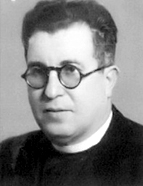

According to the testimony of his close friend Eric Axelson, Silva Rego regarded himself as "apolitical", "neither pro-salazar nor anti-salazar" (E. Axelson, ibidem , p. 56). However, as noted earlier (J. Madeira, "Subsídios..." [Elements...], 2008, p. 252), his discourse and historiographical output are shaped by the ideological orientation promoted by the Estado Novo, which praised Portuguese expansion and justified the maintenance of Portuguese overseas territories. Some have identified Luso-Tropicalist traits in his writings (Idem, p. 241). In fact, Silva Rego's connections to the government during the Estado Novo period are undeniable. He even held political office as a member of the Overseas Council and, for over twenty years, from 1953 until the Revolution of '74, served as the Prosecutor of the Corporate Chamber for overseas missionary and episcopal matters concerning the Orient. In the 1960s, he was even assigned by the government to undertake missions in Africa, specifically to study missionology in African territories (A. Moreira ibidem pp. 231-232). He thus transposed his research focus, applying it to "contemporary colonial missionary ideology" (J. Madeira, "A Construção...", 2006, p. 114). The legitimisation of Portuguese expansion in the 16th century, missionary issues, and the colonisation of Africa and the Orient were among the topics he studied, on which he aimed to establish the theory of the "good Portuguese coloniser". He argued that through mission and religious identification, the colonised were transformed into willing converts, which, from his perspective, resulted in a mutually beneficial convergence of cultures. For Silva Rego, Portuguese expansion was a manifestation of divine providence, which designated Portugal as "the first ambassador sent by Christendom and Renaissance Europe to the cult of the Orient" (A. Silva Rego, Curso de Missionologia [Missionology course] 1956, p. XXIII). For this reason, he sought to diminish the negative connotations that the concept of "colonisation" had acquired. In his view, it should be interpreted through the lens of the evangelising phenomenon and the true essence of missionary work, rejecting the political pretensions that some had associated with it. Silva Rego emphasised that the historian should "be stripped of his prejudices, not only personal, but also social" (A. Silva Rego, "Do tempo... [On time...]", p. 13). However, he also acknowledged the complexity of this task, noting that "man can hardly escape the powerful influence of his personality and other external factors" (A. Silva Rego, "Da imparcialidade..." [On impartiality...], p. 148). While it is true that Silva Rego's works were not co-opted for political purposes, or that he considered himself non-partisan, reading his texts reveals a devoted historian as well as a historian-devotee. At times, his historical thinking intertwines with that of the religious man, the priest, shaped by his missionary training and motivated by the cause of defending the actions of the Catholic Church throughout history, particularly within the context of Portuguese expansion. With this, he aimed to achieve a full restoration, also attaining "a reconnection in the academic sense of the term between the Portuguese State and theology." (J. Madeira, ibidem , 2006, p. 133).
This work is financed by national funds through FCT - Foundation for Science and Technology, I.P, in the scope of the projects UIDB/04311/2020 and UIDP/04311/2020.
